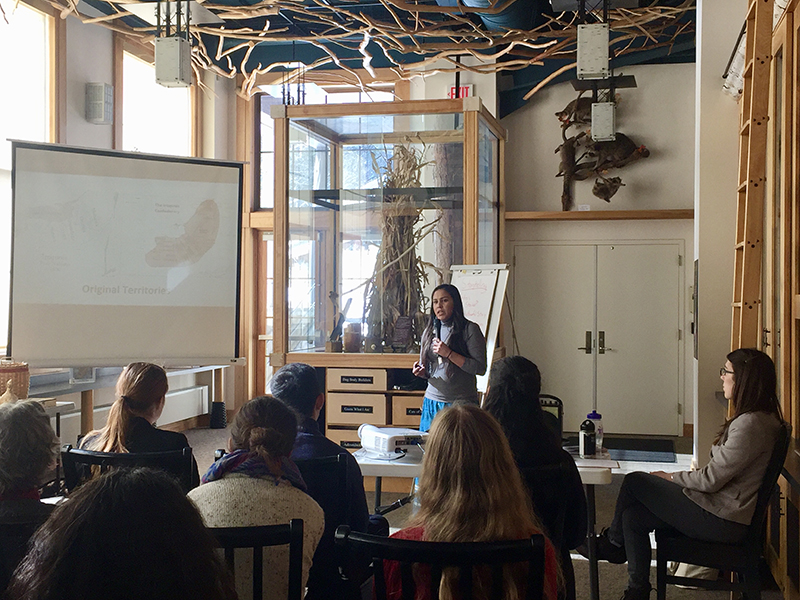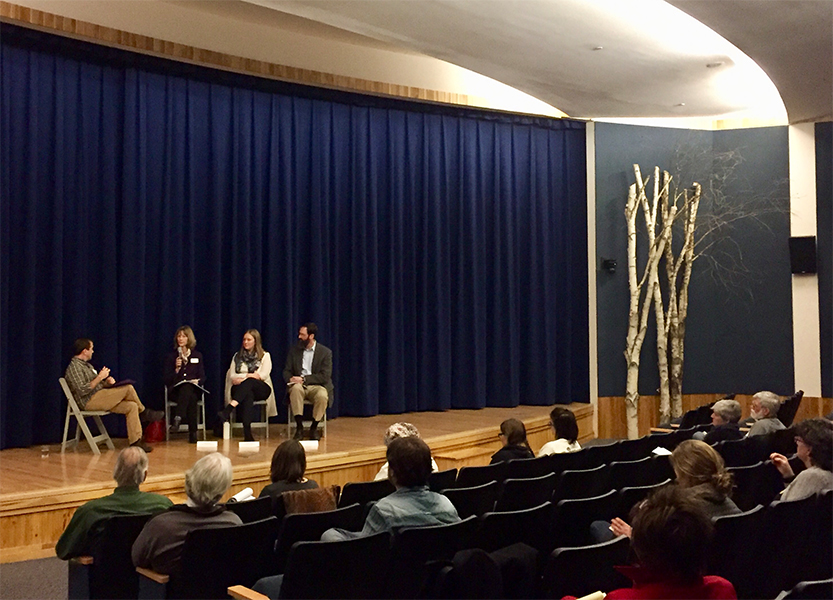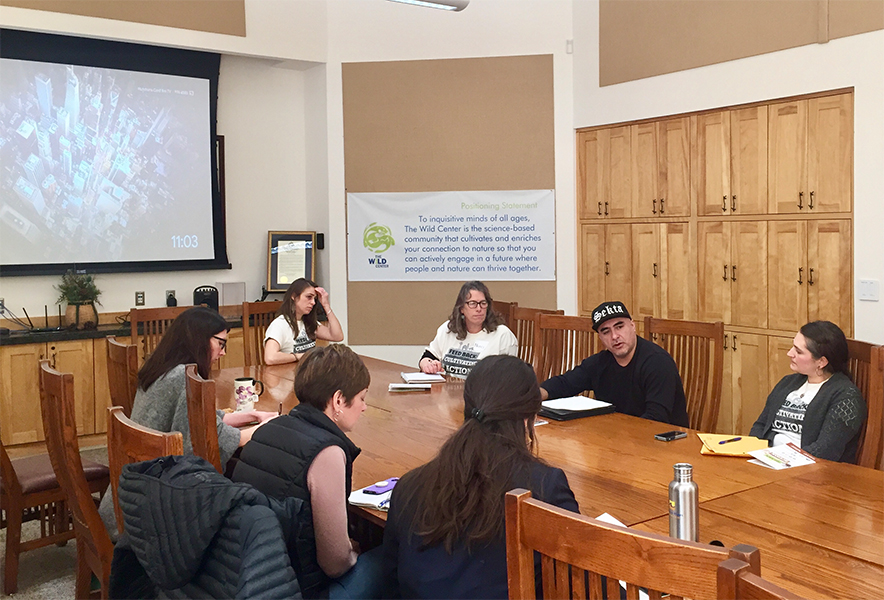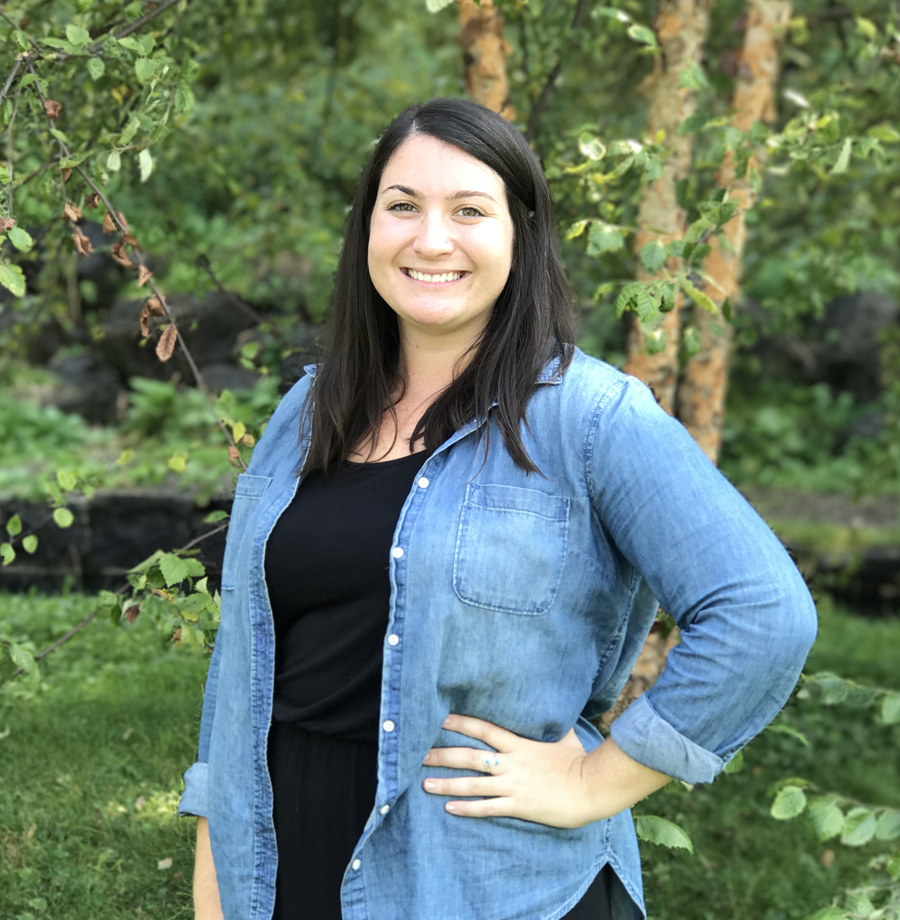
4 Things You Can Do| Food Justice in the Adirondacks
Friday, March 9, 2019
By: Mary Godnick - Adirondack Council Marketing and Development Assistant
This past Thursday, February 28, the North Country Food Justice Working Group hosted the second annual Food Justice Summit at the Wild Center in Tupper Lake. The focus of the summit was action- how can we leverage the movements that are already happening in our food system by joining forces to create a sovereign regional food system that serves all north country residents.
How Talking about Food Justice Changes the North Country Food Landscape
The keynote speaker Dr. Frances Westley opened the day speaking on social innovation. She emphasized that the key to social innovation is change and described the many ways that change happens.

Some key takeaways:
- Food Justice is a complex problem. Complex problems evolve as we seek to solve them. As one factor moves and shifts, others move and shift in response. Solutions are illusive. But this doesn’t mean we shouldn’t do anything about it, but rather that we should recognize that our goals and expectations should be shaped around knowing that.
- You’re not outside of the system. Recognize your values on each side of whatever dilemma you’re looking at. Food justice is obviously an issue important to everyone in attendance, but looking inward, what percent of food truly, do YOU purchase from local farms? What do you purchase from conventional grocery stores out of convenience? Acknowledging your own conflicting values helps better shape a holistic conversation.
- We need institutional They connect changemakers at a high level with people on the ground fighting the problems at a grassroots level. The Essex Farm Institute, which has recently become a program of the Adirondack Council, aims to bridge that gap as an institutional entrepreneur for Adirondack farms with local and state leaders and policymakers.
Finally, the keynote speaker wrapped up by sharing a short video that illustrates the interconnectedness of any action in a complex system.
Dr. Westley’s point was that by gathering leaders, community members, growers, and eaters to discuss action on food justices in the Adirondacks, we are affecting change in our food system.
Let’s use this interconnectedness and complex nature of the problem of food justice as a positive force and see how we can harness each of our strengths.

The summit then went into a wide variety of 13 break-out sessions and panel discussions broken up by lunch. The topics ranged from how to fight back on workers oppression to digital advocacy tools for farmers and non-profits.
Some takeaways for organizations, community members, farmers, and eaters that want to help build a stronger Adirondack food system from some of the various sessions:
Four things you can do to support food justice in the Adirondacks
-
Grow
Grow something at home with your kids. The Adirondack North Country Association’s (ANCA) presentation on the Farm to School program was clear...when kids are involved in growing their own food, they are much more likely to want to eat it. Also, it’s contagious! The natural and energetic “outreach” that occurs when kids share their love for fresh veggies with their friends helps kids outside your kids’ classroom or family reap the benefits too.
-
Eat
Buy local. In one of the final sessions, Brittany Christenson shared that, being generous, maybe two percent of all food consumed in the Adirondacks is grown locally. You can help create a more vibrant Adirondack food system by buying it whenever you can. Adirondack Harvest has a list of farms, markets, restaurants, and vendors. You can also find more info on utilizing SNAP benefits at local farmers markets and the mobile farmers market in Clinton and Franklin Counties.
-
Support
Be knowledgeable, offer support. Integral to the food justice discussion is understanding who grows your food and how it’s grown and produced, regardless of where you are purchasing it from – whether it be from your local farmer or food you find in the local supermarket. Fair and equitable working conditions and rights are often overlooked for farm workers, particularly migrant farm workers. Rural & Migrant Ministry is a great way to explore how you can dedicate your time and/or resources to support farm workers.
-
Advocate
If after the food summit you feel inspired, speak up! The most effective way to communicate with your state elected officials is to call, send an email or visit their office. Tell them what agricultural and food access issues are impacting you and your community. You can find contact info for the New York State Senate and Assembly here.

Huge thanks to the North Country Food Justice Working Group for organizing the summit. If you would like to be involved in continuing the discussi0on of food justice in the Adirondacks, make sure to follow the group on Facebook and sign up for email updates from the Essex Farm Institute.
If you’d like to volunteer for the North Country Food Justice Working Group, there are many ways you can help. You can distribute flyers, visit your local WIC and SNAP offices to help clients know their local food options, or visit your state representatives to advocate for policy changes to ensure access to local food for all. If you want to volunteer, email northcountryfjwg@gmail.com for more information.
|





